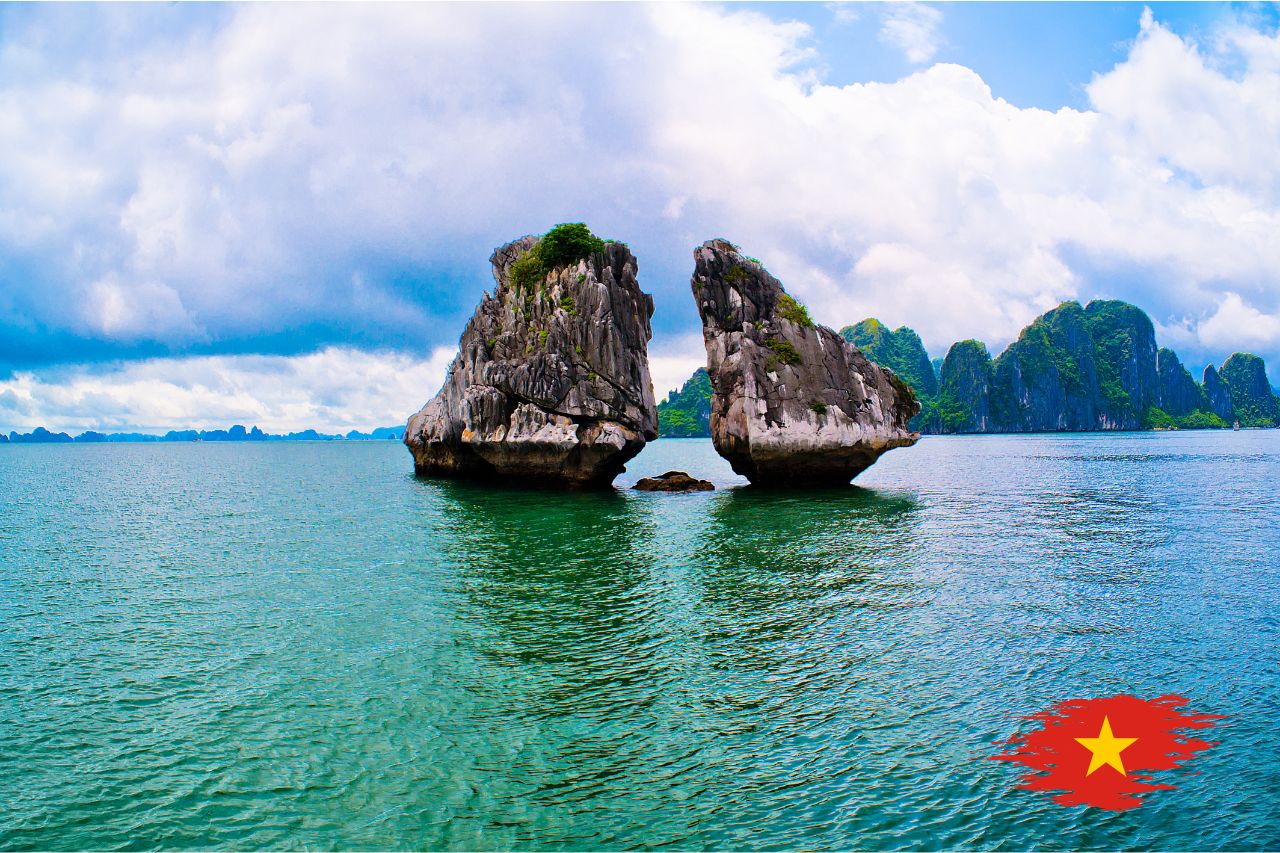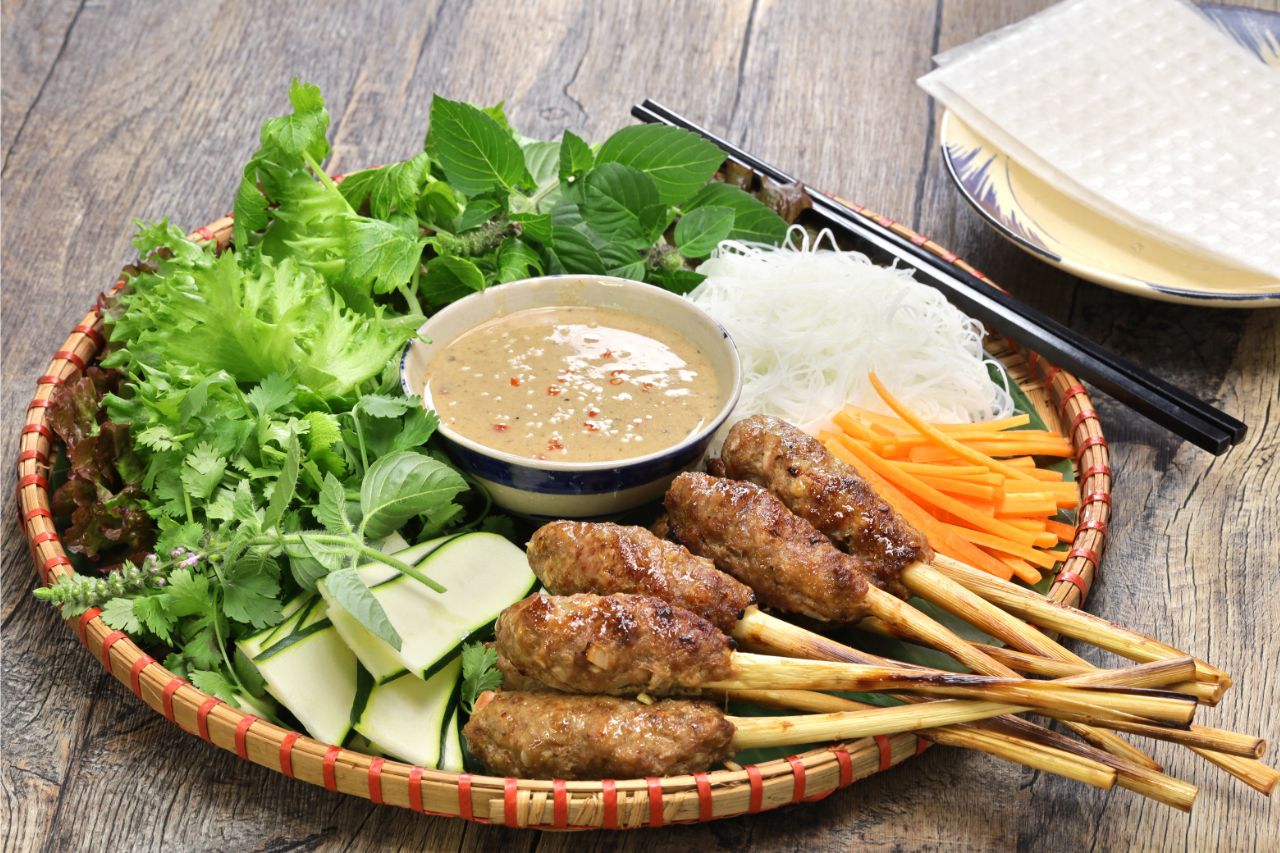Countries, Travel Guide, Vietnam
Vietnam – Useful travel information
Vietnam is a country where anything seems possible. As soon as you arrive, you’ll notice the activity, industry, and energy all around. While there are still many areas that remain peaceful and undeveloped, there’s no denying that Vietnam has entered an exciting new era, one full of promise. Now is the perfect time to visit, with more options and possibilities for your holidays than ever before.

Visa
Most visitors to Vietnam need a visa to enter the country. Visas are exempted for the citizens of the countries which have signed a bilateral or unilateral visa exemption agreement with Vietnam.
Visa exemption
Overseas Vietnamese and foreigners who are spouses or children of overseas Vietnamese or Vietnamese citizens are exempt from visa requirements to enter Vietnam and are allowed to stay for not more than 6 months if they have and passports or international travel documents with the validity of at least 01 year and papers proving eligibility as prescribed. Visa exemption paper (VEP) is valid for not more than 5 years and expires at least 6 months prior to the expiry date of holder’s passport or international travel document. For more information, please visit the website: http://mienthithucvk.mofa.gov.vn/
Bilateral visa exemption agreement
Citizens of Thailand, Malaysia, Singapore, Indonesia, Cambodia and Laos holding valid ordinary passports are exempt from visa requirements and are allowed to stay for not more than 30 days; Philippines is allowed to stay for not more than 21 days; Brunei and Myanmar citizens are allowed to stay for not more than 14 days; Chilean citizens are allowed to stay for not more than 90 days and vice versa.
By August 2017, citizens of 81 countries holding valid diplomatic or official passports are exempt from visa requirements and vice versa, including: Argentina, Afghanistan, Albania, Algeria, Angola, Armenia, Azerbaijan, Bangladesh, Belarus, Brazil, Brunei, Bulgaria, Cambodia, Chile, China, Colombia, Costa Rica, Croatia, Cuba, Cyprus, Czech Republic, Dominica, Ecuador, Egypt, El Salvador, Estonia, France, Germany, Hungary, India, Indonesia, Iran, Iraq, Italia, Israel, Ivory Coast, Japan, Kazakhstan, Kyrgyzstan, Laos, Macedonia, Malaysia, Malta, Mexico, Moldova, Mongolia, Montenegro, Morocco, Mozambique, Myanmar, Nicaragua, North Korea, Kuwait, Pakistan, Panama, Paraguay, Peru, Philippines, Poland, Romania, Russia, Serbia, Seychelles, Singapore, Slovakia, Slovenia, South Africa, South Korea, Sudan, Spain, Sri Lanka, Switzerland, Tanzania, Thailand, Tunisia, Turkey, Ukraine, United Arad Emirates (U.A.E), Uruguay, Uzbekistan, Venezuela.
Duration of stay is applied for each specific object. For more information, please visit the website: lanhsuvietnam.gov.vn
Unilateral visa exemption
Foreigners and Vietnamese people holding foreign passports are allowed to stay in Phu Quoc Island for not more than 30 days without visa. In case foreigners who transit via an international gate of Vietnam (including by air or sea) and then to Phu Quoc Island later also exempt from visa requirements.
Visa with 30-day validity is exempted for officials from ASEAN secretariat holding different kinds of passports.
From 01 January 2015 to the end of 31 December 2019, citizens of Sweden, Norway, Denmark, Finland, Japan, South Korea and Russia holding different kinds of passports are exempt from visa requirements and are allowed to stay for not more than 15 days.
From 1 July 2015 to end of 30 June 2021, citizens of the United Kingdom, the French Republic, the Federal Republic of Germany, the Kingdom of Spain and the Italian Republic holding different kinds of passports are exempt from visa requirements and are allowed to stay for not more than 15 days.
From 1 July 2015 to end of 30 June 2020, citizens of the Republic of Belarus holding different kinds of passports are exempt from visa requirement and are allowed to stay for not more than 15 days.
Visa applications
Visa is issued by competent authorities of Vietnam in foreign countries. Visa on arrival is possibly issued in some special cases. For more, please visit the website https://visa.mofa.gov.vn.
Documents for visa application: 01 application form (in provided format) with an attached 4x6cm photo; passport or passport substitute that its validity must be at least 01 month longer than the applied visa validity.
Tourist visa is valid for up to 3 months.
Customs
Luggage of people on entry and exit (including clothes, personal belongings with reasonable quantity in service of the trip’s purpose) must be declared in case as follow:
- Luggage exceeding duty free concessions;
- Luggage sent before or after the traveller;
- Imports and exports under regulation of the State;
- Professional equipment temporarily imported and re-exported or vice versa;
- Addictive medication;
- Jewelry gold, fine-art gold exceeding 300g;
- Drafts, cheque or precious metals, precious stones with a value of more than VND 300 million;
Foreign currency exceeding USD 5,000 (five thousand) or its equivalent in other foreign currency, or more than VND 15,000,000 (fifteen million) in cash.
Goods prohibited for import: weapons, ammunition, explosives, military equipment, drugs, toxic chemicals, immoral and reactionary products, firecrackers of all kinds, toys with a negative impact on education, and social security, cigarettes beyond the quantity stipulated, some consumer goods, materials and vehicles have used, ingot gold, raw material gold…
Goods prohibited for export: weapons, ammunition, explosives, military equipment, antiques, drugs, toxic chemicals, wild animals, endangered animals and plants, documents related to national security, ingot gold and raw material gold…
Duty free concessions for arriving passengers:
- Liquor: 1.5 liters of liquor above 22° alcohol; 2.0 liters of liquor below 22°; 3 liters of alcoholic beverages;
- Cigarettes: 200 pieces; Cigars: 100 pieces; Tobacco: 500g;
- A reasonable quantity of clothes and personal belongings related to the purpose of the trip;
- Articles other than those mentioned above (excluding the list of goods banned for import or subject to conditional import) with total a value not exceeding VND 10,000,000 (ten million).
Note: Foreigners carrying luggage, in excess of duty-free quotas to be given as presents and gifts with a total value not exceeding VND 1,000,000 (one million) will be exempt from taxes.
Climate & time to visit
Vietnam is located in both a tropical and a temperate zone. It is characterized by strong monsoon influences, but has a considerable amount of sun, a high rate of rainfall, and high humidity. Regions located near the tropics and in the mountainous regions are endowed with a temperate climate.
The monsoon climate also influences to the changes of the tropical humidity. In general, in Vietnam there are two seasons, the cold season occurs from November to April and the hot season from May to October. The difference in temperature between the two seasons in southern is almost unnoticeable, averaging 3ºC. The most noticeable variations are found in the northern where differences of 12ºC have been observed. There are essentially four distinct seasons, which are most evident in the northern provinces (from Hai Van Pass toward to the north): Spring, Summer, Autumn, and Winter.
The best time to visit Vietnam is the period from October to April of the following year, the temperatures are more moderate and rainfall is lighter.
Language
Vietnamese is the official language. Almost tourist guides speak languages: English, Chinese, French, Russian and Japanese.
Among the 54 Vietnamese ethnic groups some have had their own scripts for a long time and some have not preserved their ancient scripts. As a matter of fact, some ethnic groups consisting of some hundreds of individuals living in remote areas have their own languages.
Currency
Vietnamese dong (VND) is the official currency in Vietnam.
- Paper notes include: VND 500,000; 200,000; 100,000; 50,000; 20,000; 10,000; 5,000; 2,000; 1,000 and 500. Coins include VND 5,000; 2,000; 1,000; 500 and 200, but they are no longer used actually.
Cheques with value as Vietnamese dong include: VND 1,000,000 and 500,000.
- Foreign currencies and tourist cheques can be exchanged into Vietnamese Dong at banks or foreign exchange agencies.
- Credit cards are popularly used, especially in cities and big tourist centers.
Before leave Vietnam, Vietnamese dong can be changed into foreign currencies at the airport.
Public holidays
- Saturdays and Sundays are holidays. There are ten public holidays in a year:
- January 1: New Year’s Day, (one day holiday)
- April 30: Sai Gon Liberation Day, (one day holiday)
- May 1: International Labour Day, (one day holiday)
- September 2: National Day of the Socialist Republic of Vietnam, (one day holiday)
- Vietnam Traditional Lunar New Year Festival – Tet Nguyen Dan: (Five day holiday).Tet holiday usually falls at the end of January or middle of February by solar calendar. The holiday begins on the two last days of the last lunar month and lasts through the first three days of the Lunar New Year (Tet Nguyen Dan)
- The 10th day of the third lunar month: The ancestors’ death anniversary of the whole nation (one day holiday)
Useful numbers
- 0: National Domestic Direct Dialing Access Code
- 00: International Direct Dialing Access Code
- 100117: Time Inquiries
- 1080: Information directory & English service
- 112: Rescue emergency
- 113: Police
- 114: Fire Brigade
- 115: Ambulance
- 116: Local Call Assistance
Transport
Transportation in Vietnam is various and developed. From air, and road to water, transportation in the country can meet the demand of tourists’ travel. It is easy for both local people and tourists travel from one place to others in Vietnam.
Foods
In the past few years Vietnamese food has become more and more popular around the world. Food lovers may have tried the two best known Vietnamese dishes – spring rolls and bread rolls. Rice, noodles, fresh vegetable and herbs all play big roles in Vietnamese food, making it one of the healthiest cuisines in the world.

What to order:
- Banh Mi Thit: The Vietnamese equivalent of a “submarine” – a Vietnamese baguette stuffed with any of a wide variety of fillings including ham, cheese, canned sardines, Vietnamese bologna and pickled carrot.
- Bo Kho: Beef-and-vegetable stew, usually accompanied by baguettes.
- Che: For dessert, try Che, a pudding made from sticky rice and beans.
- Buncha: Vietnamese Pork Meatball and Noodle Salad.
- Nem Nuong Xa: Grilled meat on lemongrass skewers.
- Goi Cuon: The famous Vietnamese “summer rolls”: shrimp or pork (sometimes both) with herbs, rolled up in rice paper and served cold with a peanut dipping sauce.
- Pho: Pho is a Vietnamese noodle soup, usually served with beef (phở bò) or chicken (phở gà).The soup includes noodles made from rice and is often served with Vietnamese basil, mint leaves, lime, and bean sprouts that are added to the soup by the person who is dining.
Internet access
It might be one common concern of travelers coming to Vietnam because of Internet’s importance for their personal or business purposes such as social media usage and emailing. Nowadays in Vietnam, wireless connection is provided throughout the country, in both public and private areas. Wifi access is currently available in almost all hotels, cafeterias, pizzerias and even street food stores.
Security
Vietnam is a fantastic country, which has an incredibly rich legacy. It’s well known for white sandy beaches, jungle rivers, sophisticated Buddhist pagodas, vibrant city life and fantastically delicious food. Generally, the level of crimes is moderate. Violent crime in the country is rare. Petty crimes like a bag, purse snatching, pick pocketing and other types of petty crimes prevail. In order to make your trip safe.
Hotels
Lodging isn’t a problem in Vietnam, even if you are travelling on a pretty spending plan that is tight. Accommodation in Vietnam varies from scruffy US$ dorm that is 6-a-night in backpacking hostels to world-class resorts, both in big cities and in popular coastal and rural locations. In hotels costing a few dollars more (US$12 per space upwards, more in Hanoi) you can get an suite that is en, telephone, air conditioning and television. Most hotels throughout Vietnam now have high-speed Internet access.


